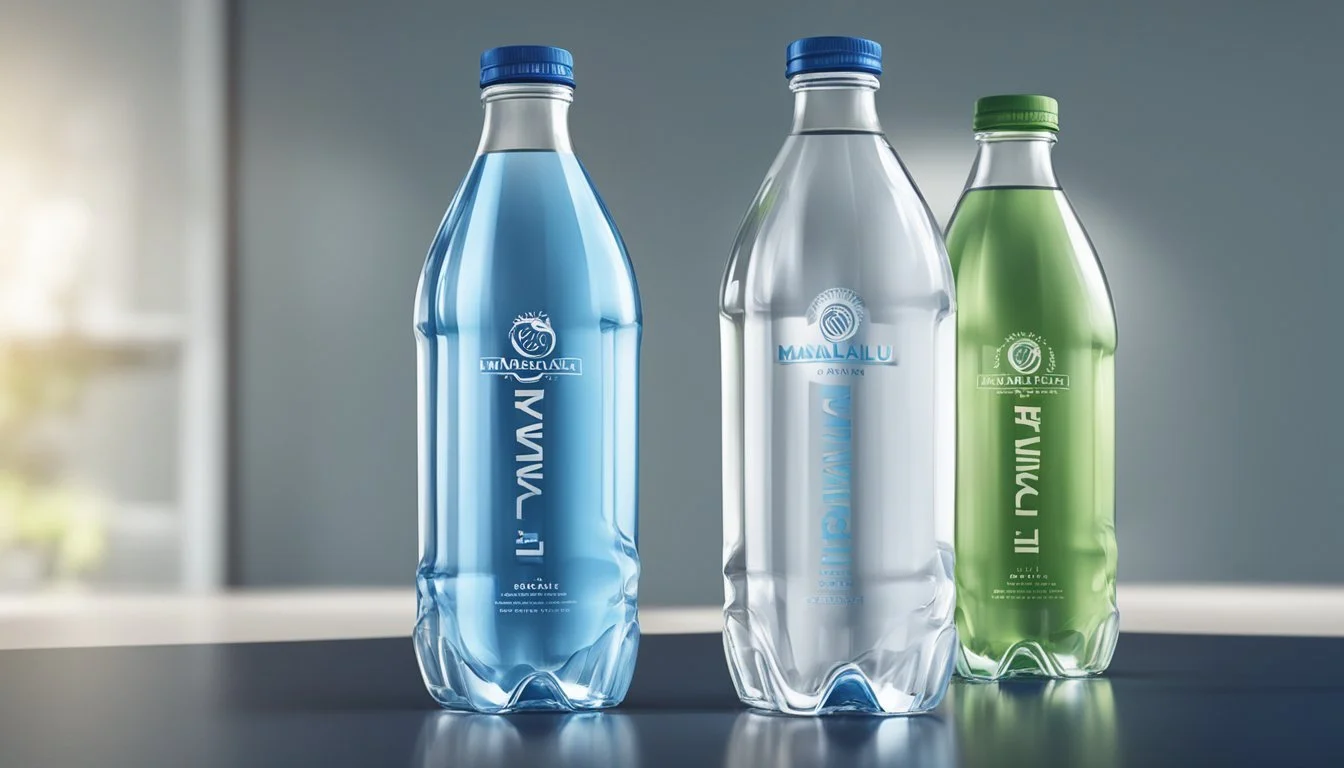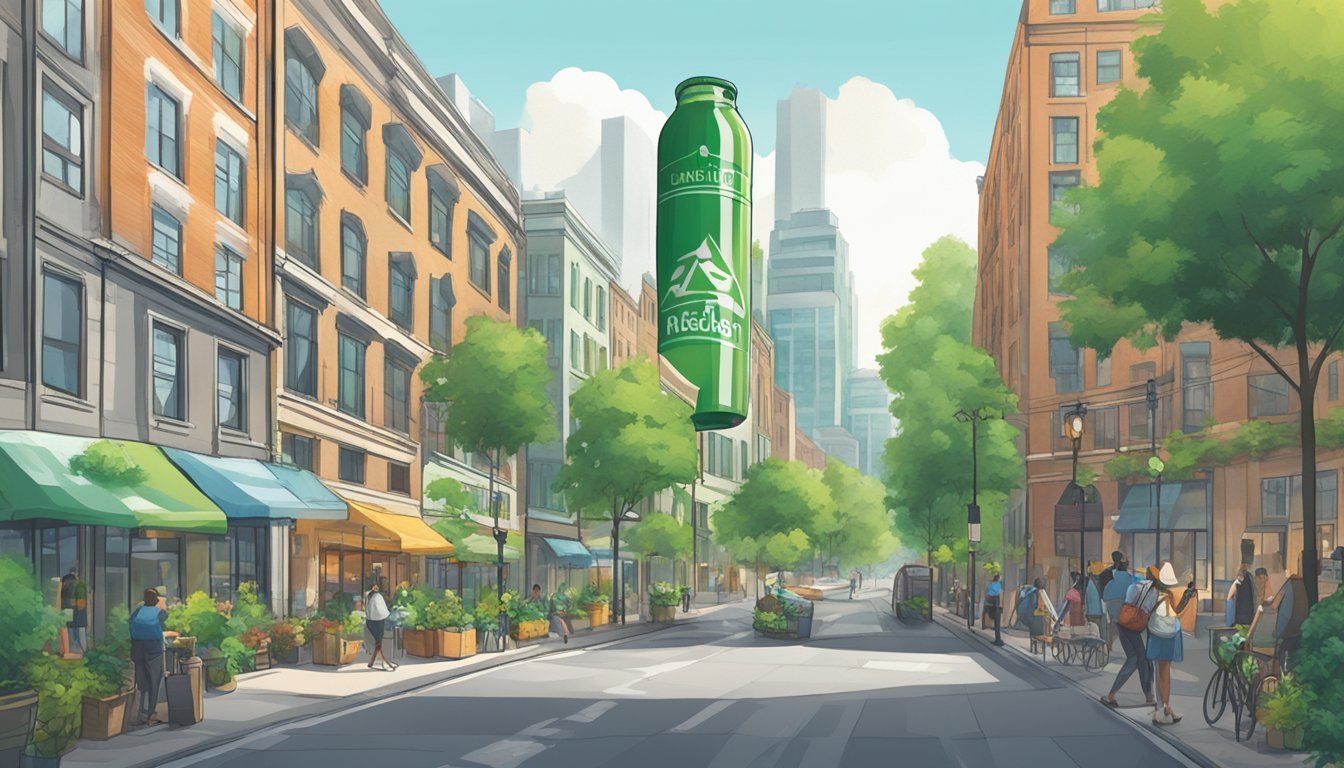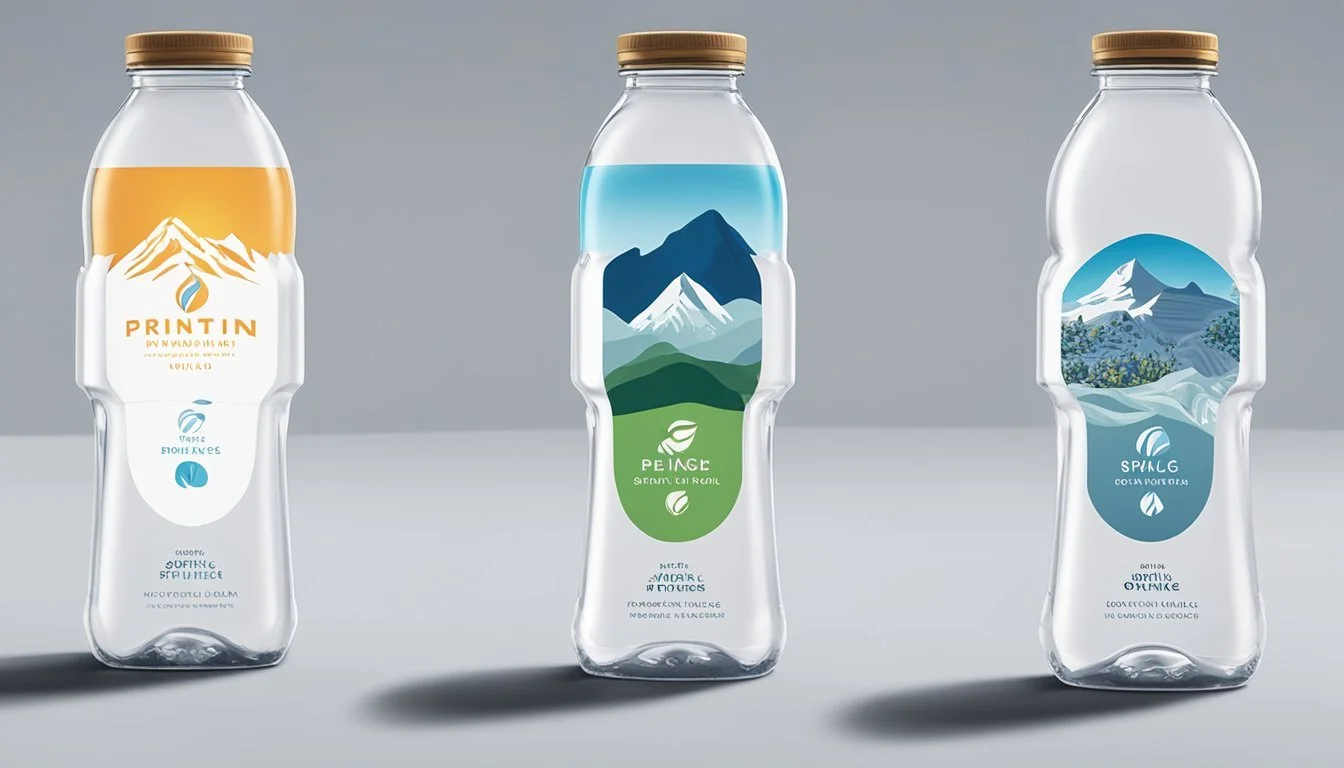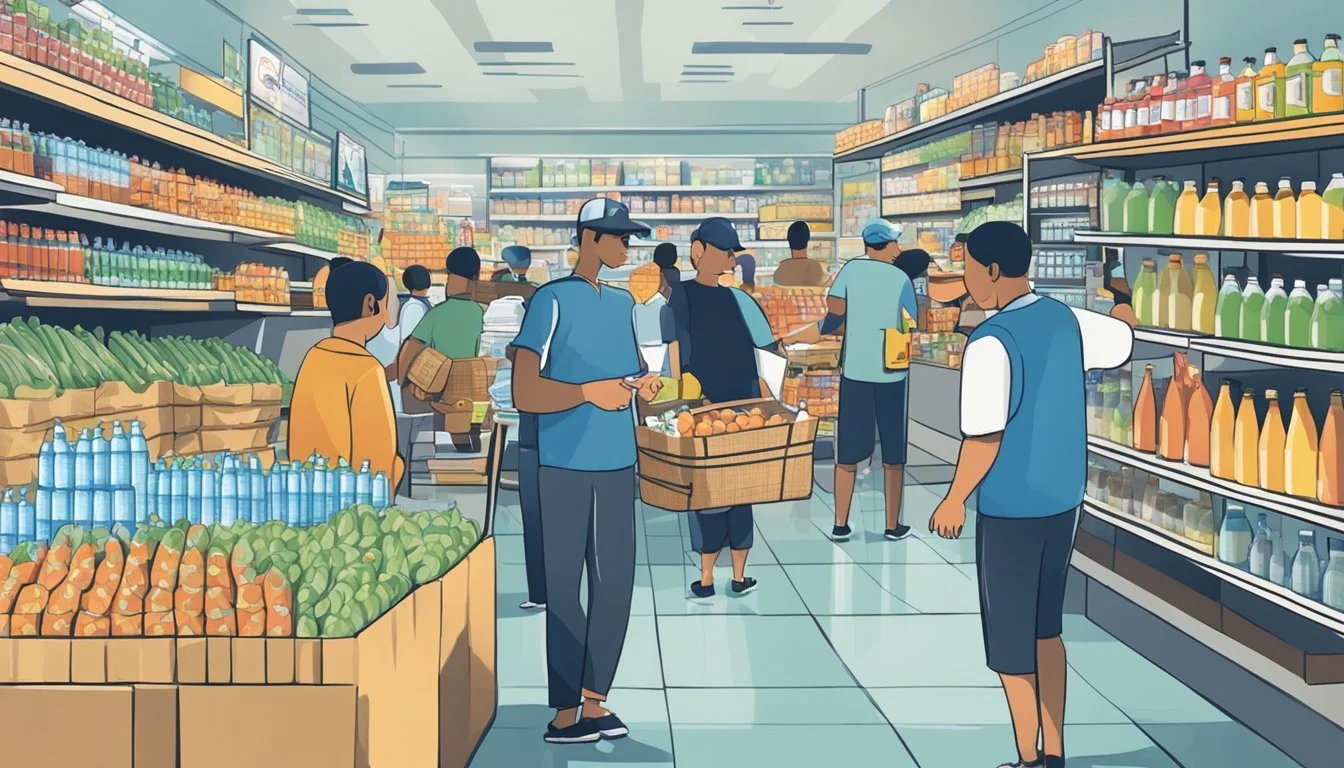Mananalu vs. Big Chill
Bottled Water Comparison
When it comes to choosing between Mananalu and Big Chill bottled water, there are several factors to consider, including taste, environmental impact, and brand ethos. Mananalu, founded by Jason Momoa, stands out with its strong sustainability mission to eliminate single-use plastic bottles by packaging its water in 100% recyclable aluminum cans. This aligns with a growing consumer trend toward environmentally friendly products.
Big Chill, another prominent player in the bottled water industry, offers a more traditional approach with its purified water. It is known for its crisp, clean taste and reliable quality. However, it does not emphasize the same level of environmental commitment as Mananalu, which might influence eco-conscious buyers.
For those who prioritize sustainability, Mananalu provides an appealing option. On the other hand, if taste and traditional packaging are more critical factors, Big Chill remains a solid choice.
The Rise of Sustainable Bottled Water
Sustainable bottled water solutions are gaining traction by addressing critical environmental concerns. This movement focuses on innovative packaging and reducing single-use plastic waste.
Turning the Tide Against Plastic Pollution
The bottled water industry is responding to growing environmental awareness. Traditional plastic bottles contribute significantly to pollution, especially in oceans. Single-use plastics often end up as ocean-bound waste, harming marine life and ecosystems. There is a push to lower plastic usage by adopting environmentally friendly alternatives.
Brands like Mananalu lead by example, emphasizing sustainability. They aim to reduce plastic pollution by using materials that minimize environmental impact. This shift is crucial for protecting ocean health and biodiversity.
The public's rising environmental consciousness propels this trend. Consumers prefer products that offer sustainable solutions. Companies adopting these practices are consequently gaining market share and consumer trust.
Aluminum Bottles as a Sustainable Solution
Aluminum bottles present a viable solution for sustainable packaging. Unlike plastic, aluminum is infinitely recyclable. This quality ensures that aluminum containers can be reprocessed repeatedly without losing integrity or quality.
Mananalu, founded by Jason Momoa, is at the forefront of this movement. Their use of 100% recycled aluminum for packaging highlights the potential of this material in reducing waste. These bottles are durable, refillable, and provide a significant reduction in environmental footprint.
The shift to aluminum not only reduces plastic waste but also promotes recycling. Aluminum bottles contribute less to pollution and offer a scalable solution for the bottled water industry, helping preserve our oceans and environment.
Mananalu: Jason Momoa's Vision for Hydration
Jason Momoa's Mananalu is an innovative bottled water brand with a strong environmental mission rooted in Hawaiian culture and sustainability. It aims to disrupt the bottled water industry with the use of recyclable materials and a commitment to reducing plastic waste.
Embracing Hawaiian Roots and Sustainability
Mananalu is deeply inspired by Hawaiian culture. The name itself combines "mana," meaning the sacred spirit of life, and "nalu," referring to powerful ocean waves. Jason Momoa aims to honor his heritage while advocating for environmental change.
The brand's "drink one, remove one" initiative partners with organizations like repurpose global to remove plastic waste from oceans. Each bottle purchased helps eliminate a plastic bottle from the environment, enhancing its sustainability mission.
Innovations in Bottled Water
Mananalu stands out with its unique packaging. Unlike traditional plastic bottles, Mananalu uses recyclable aluminum for its containers. These aluminum bottles are resealable and designed to be infinitely recyclable, offering an eco-friendly alternative that aims to reduce single-use plastic waste.
The water itself is purified and hydrating, meeting high standards for bottled water quality. By combining cutting-edge packaging with a mission-driven approach, Mananalu seeks to create a ripple effect in the beverage industry, pushing for more sustainable practices across the board.
Environmental Footprint Comparison
The environmental impact of bottled water extends beyond the water itself to the materials used and the processes involved in production and distribution.
Carbon Footprint of Water Production and Distribution
Mananalu Water, founded by Jason Momoa, emphasizes sustainability by using recyclable aluminum cans instead of single-use plastic bottles. This choice significantly reduces their carbon footprint. Aluminum is lightweight, lowering transportation emissions.
Big Chill, on the other hand, primarily uses plastic bottles. Producing plastic emits greenhouse gases, increasing the overall carbon footprint. Additionally, transporting heavier plastic bottles contributes more to carbon emissions.
Mananalu's focus on sustainable packaging helps minimize its carbon emissions, making it a more eco-friendly option compared to Big Chill.
Impact of Bottling Materials on the Environment
Mananalu uses aluminum cans, which are highly recyclable. Nearly 75% of all aluminum ever produced is still in use today. This infinitively recyclable material means less waste in landfills. Aluminum cans can be recycled repeatedly without losing quality, reducing overall environmental impact.
Big Chill relies on plastic bottles, which contribute to ocean plastic pollution. Single-use plastic water bottles often end up in landfills or oceans, taking hundreds of years to decompose. This leads to significant long-term environmental damage.
Choosing Mananalu's recyclable aluminum cans over Big Chill's plastic bottles can help reduce ocean plastic pollution and environmental harm.
Taste and Purity Standards
The taste and purity of bottled water are critical factors in determining its quality. Understanding the purification processes and the commitment to maintaining purity are essential in evaluating which brand stands out.
Big Chill's Purification Process
Big Chill employs a meticulous purification process to ensure high-quality water. The process begins with sourcing the water from tap water, which is then subjected to reverse osmosis. This method effectively removes impurities, leaving behind purified water.
Next, the water is filtered through activated carbon to eliminate any remaining contaminants and odors. This additional step ensures that the water tastes clean and fresh, free from any chemical residues. A water sommelier often evaluates the final product to confirm its purity and taste standards.
Mananalu's Commitment to Pure Water
Mananalu, founded by actor Jason Momoa, places a strong emphasis on environmental responsibility and water purity. Their water comes in 100% recyclable aluminum cans, which is a major step towards eliminating single-use plastic. The purification involves a rigorous multi-step filtration process to remove impurities and maintain a crisp, clean taste.
The water is filtered several times to ensure it meets high purity standards. During the final stages, the water is checked for any dissolved solids that might affect its taste or quality. This attention to detail ensures that Mananalu's water is not only pure but also flavorful, making it an appealing choice for consumers who value both taste and environmental impact.
Brand Partnerships and Social Impact
Mananalu and Big Chill both emphasize their commitment to sustainability through various partnerships and initiatives. While Mananalu focuses on global environmental impact, Big Chill's efforts target local communities and broader environmental goals.
Mananalu's Global Influence and Alliances
Mananalu, founded by actor and ocean activist Jason Momoa, engages in impactful global partnerships. Through its collaboration with rePurpose Global, the company removes one plastic bottle from ocean-bound waste for every aluminum bottle sold, embodying the "Drink One, Remove One" initiative.
Additionally, Mananalu aligns with the World Surf League, promoting plastic-free oceans. The brand also incorporates Climate Neutral certifications, ensuring its carbon footprint is minimized. By partnering with the United Nations for various ocean conservation projects, Mananalu underscores its mission to combat plastic pollution on a worldwide scale.
Big Chill's Community and Environmental Initiatives
Big Chill focuses on community-driven sustainability efforts. The company commits to local partnerships aimed at reducing plastic waste and providing clean drinking water. They emphasize recycling programs and encourage consumers to participate in eco-friendly practices.
Aligned with 1% for the Planet, Big Chill donates a portion of their sales to environmental causes. Their focus on Climate Neutral certifications ensures their operations remain sustainable. Through these efforts, Big Chill fosters a connection with local communities and works towards broader environmental stewardship.
Mananalu and Big Chill’s partnerships reveal their dedication to both local and global environmental responsibilities. Each brand leverages unique alliances to promote sustainability and community engagement.
Market Presence and Consumer Accessibility
Mananalu and Big Chill differ in their distribution channels and pricing strategies. These factors significantly influence their market accessibility and attractiveness to consumers.
Distribution: Grocery Stores and Online Retail
Mananalu is widely accessible, available both online and in physical stores. Online retailers, such as Amazon, stock Mananalu, making it easy for consumers to purchase. Grocery stores including Whole Foods, Safeway, Sprouts Market, and Foodland also carry Mananalu, enhancing its physical presence.
Big Chill is primarily found in major grocery chains. While it might not have as extensive online availability as Mananalu, Big Chill’s partnership with key grocery stores ensures significant market penetration. This approach targets shoppers who prefer purchasing bottled water during their regular grocery runs.
Affordability: Costs for the Eco-conscious Consumer
Mananalu positions itself as an eco-friendly option with its 100% recyclable aluminum cans. The product's cost reflects this environmental focus, typically priced slightly higher due to the sustainable packaging. Consumers who prioritize eco-friendliness are often willing to pay a premium for Mananalu’s offerings.
Big Chill, on the other hand, focuses more on affordability. It tends to be priced lower, appealing to budget-conscious consumers. While it may not emphasize sustainability as much as Mananalu, Big Chill’s competitive pricing strategy attracts a broad consumer base looking for cost-effective bottled water.
Analysis of Bottle Design and Features
Mananalu and Big Chill both offer unique and practical bottle designs, aiming at sustainability and convenience for their users. Key features to focus on include resealability, convenience, aesthetic appeal, and brand identity.
Resealability and Convenience
Mananalu: The aluminum bottles by Mananalu are designed with resealability in mind. These bottles have screw caps that allow users to seal and reseal the bottles multiple times, ensuring the water remains clean and fresh. This feature is particularly useful for those on the go, providing a spill-free experience.
Big Chill: Big Chill typically offers their products in plastic bottles, many of which are single-use. While some variations come in resealable options, the majority aren’t designed for multiple uses. This convenience factor makes Mananalu’s aluminum bottles more appealing for environmentally conscious consumers who prefer reusable options.
Aesthetic Appeal and Brand Identity
Mananalu: The Mananalu brand emphasizes its mission to eliminate single-use plastics. The sleek aluminum design gives it a premium feel, with the added benefit of being infinitely recyclable. The bottles often feature distinctive designs, such as limited-edition “Aquaman” themes, aligning with Jason Momoa’s ocean activism and creating a strong visual identity.
Big Chill: Big Chill’s design follows a more traditional approach. The plastic bottles are clear, often with vibrant labels to catch the consumer's eye. While aesthetically pleasing, they lack the environmentally friendly message that Mananalu projects. The brand identity here focuses more on the beverage itself rather than a broader mission.
More About Mananalu
Hawaiian Springs vs Mananalu: Which Bottled Water is Better?
Icelandic Glacial vs Mananalu: Which Bottled Water is Better?
Mananalu vs Cascade Mountain: Which Bottled Water is Better?
Mananalu vs Kirkland Signature: Which Bottled Water is Better?
Mananalu vs Richard's Rainwater: Which Bottled Water is Better?
Mananalu vs Talking Rain AQA: Which Bottled Water is Better?
Mananalu vs Whole Foods Italian Still Mineral water: Which Bottled Water is Better?
Mountain Valley Spring Water vs Mananalu: Which Bottled Water is Better?
Nestle Pure Life vs Mananalu: Which Bottled Water is Better?
More About Big Chill
Big Chill vs Kirkland Signature: Which Bottled Water is Better?
Big Chill vs Talking Rain AQA: Which Bottled Water is Better?
Big Chill vs Whole Foods 365: Which Bottled Water is Better?
Cascade Mountain vs Big Chill: Which Bottled Water is Better?
Hawaii Volcanic vs Big Chill: Which Bottled Water is Better?
Hawaiian Springs vs Big Chill: Which Bottled Water is Better?
Icelandic Glacial vs Big Chill: Which Bottled Water is Better?
Mountain Valley Spring Water vs Big Chill: Which Bottled Water is Better?
Nestle Pure Life vs Big Chill: Which Bottled Water is Better?
Richard's Rainwater vs Big Chill: Which Bottled Water is Better?
Solan de Cabras vs Big Chill: Which Bottled Water is Better?
Whole Foods Italian Still Mineral water vs Big Chill: Which Bottled Water is Better?





